Committees
Scientific Advisory Committee (SAC)
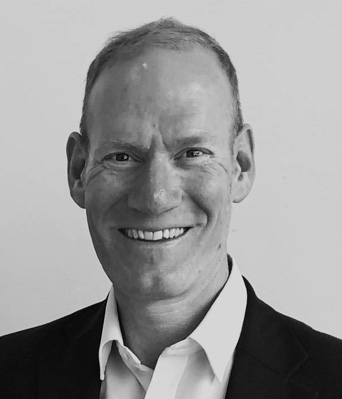
David Tidhar is the chairperson for the 7th CWW Conference Scientific Advisory Committee (SAC). He is a biodiversity specialist who has been working on global renewable energy projects on behalf of project developers, owner-operators, lenders and stakeholders since 2005. David served on the SAC for the 5th and 6th CWW conferences and is passionate about expanding the relevancy of the event for new and emerging markets, and increasing international industry and stakeholder participation. David serves as Biodiversity Manager for Masdar Clean Energy, a leading developer and operator of utility-scale renewable energy projects, community grid projects, and energy services consultancy.
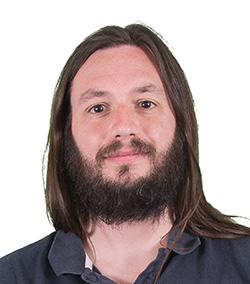
Dr. Aonghais Cook is Principal Ecologist for Offshore Renewable Energy at the BTO. He has over 15 years experience investigating the impacts of renewable energy on birds, with a particular focus on offshore wind farms.
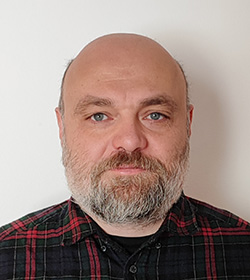
Branko Karapandža has been a biodiversity consultant for 15 years. He is a member of Eurobats IWG on windfarms and one of the authors of the latest Eurobats Guidelines for Consideration of Bats in Wind Farm Projects, as well as a member of IUCN SSC Bat Specialist Group and a member of the Expert Review Group of IFC’s Good Practice Handbook on Post-Construction Monitoring of Bird and Bat Fatalities at Onshore Wind Power Projects.
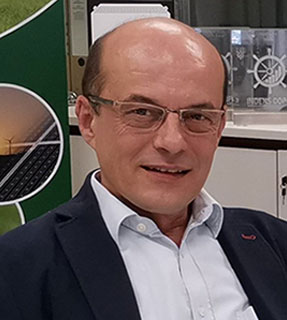
Dalibor Hatić is the chair of the CWW2023 Organising Committee. He is an environmental consultant with over 30 years of experience and Director of OIKON Ltd. – Institute of Applied Ecology from Zagreb, Croatia. He is passionate about making development environmentally friendly and is very excited about this conference.
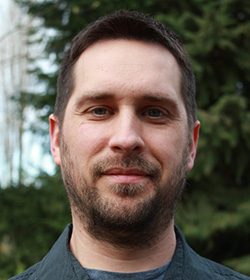
Cris Hein leads the wind energy and wildlife portfolio at the National Renewable Energy Laboratory. Dr. Hein also coordinates 2 international, multi-stakeholder groups, the Bats and Wind Energy Cooperative, and IEA Wind’s Task 34-Working Together to Resolve the Environmental Effects of Wind Energy (WREN).
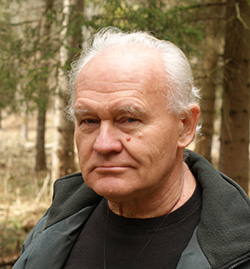
Đuro Huber is professor emeritus at the Faculty of Veterinary Medicine in Zagreb. He has been studying large carnivores (brown bears, wolves and lynx) for over 40 years and is applying the results in their conservation and management including protecting habitat quality and connectivity. The latter included the mitigation of permeability of motorways and the negative effect of wind farms. Not only the flying animas are affected by wind turbines.
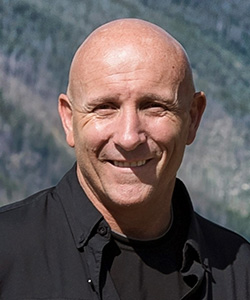
Ed Arnett joined The Wildlife Society staff as the Chief Executive Officer in November 2021, after more than 30 years working as a scientist, research and management biologist, policy liaison, and educator. He led research and policy efforts on wind energy and wildlife issues for more than a decade, has authored numerous articles and book chapters on bats and wind energy, and has served on all seven CWW Scientific Advisory Committees.
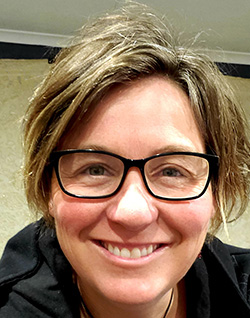
Emma Bennett (PhD Candidate) works as an ecological consultant and academic in Australia. She is a specialist in the use of dogs to find rare and hard to find species and has almost 20 years experience in wind energy and wildlife impacts.
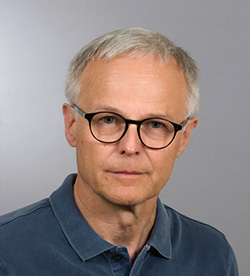
Johann Köppel served as a full professor at the Technische Universität Berlin (Germany) until spring 2023, specializing in environmental impact assessment and a focus on windenergy and wildlife mitigation. He served in CWW’s scientific advisory boards from the onset in 2011. Starting in fall 2023, he will be a guest professor at Uppsala University, Campus Gotland, Sweden.
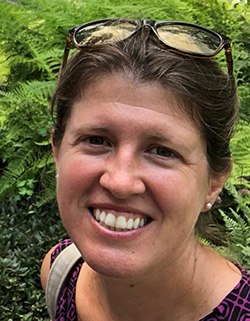
Kate Williams is the Director of the Center for Research on Offshore Wind and the Environment (CROWE) at the Biodiversity Research Institute (BRI) in Maine, USA. She has worked on renewable energy and wildlife issues since 2010, with a particular focus on 1) assessing birds’ offshore distributions and movements, and 2) working with stakeholder groups to identify research priorities and inform environmentally responsible offshore wind energy development.
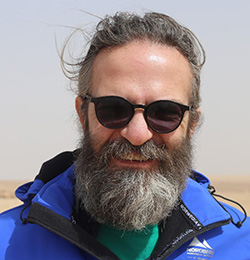
Laith El-Moghrabi is an ecologist with experience of more than 25 years in ecological research with a focus on habitats and birds. Over the past 12 years, he was involved in research on impacts of wind energy on birds in several countries in West Asia and North & East Africa.
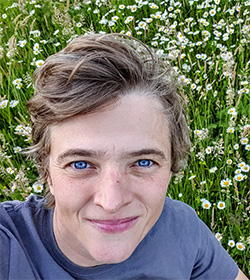
Mirna Mazija is the co-chair of the CWW2023 Organising Committee. She is a biodiversity specialist in the region, advising on the renewable energy projects and Natura 2000 species and site management. Her research interest are bats - population management and protection, interactions with windfarms and bringing innovative solutions to sophisticated mitigation measures.
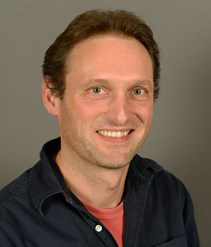
Roel May is Senior Research Scientist at the Norwegian Institute for Nature Research (NINA). His research interest is set in the interface between science and conservation; and is centred on impacts of renewable energy on wildlife and spatial ecology. He was chairperson for the 1st CWW conference in 2011 and served in all consecutive CWW’s scientific advisory boards since then.
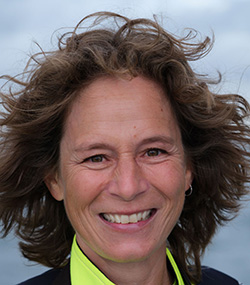
Sytske van den Akker is Msc. in Marine Biology and works as Senior Environment and Sustainability Specialist at Vattenfall. She has more than 10 years of experience coordinating marine ecology projects in offshore wind. She is passionate to use science to develop offshore wind in an ecological sustainable way, reducing negative and stimulating positive effects.
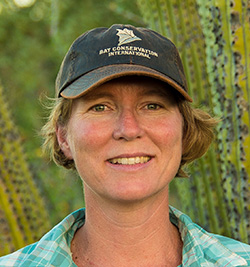
Dr. Winifred F. Frick is Chief Scientist at Bat Conservation International where she directs priority research to achieve conservation outcomes for bats around the world. She has worked on bat conservation for over 20 years and published over 80 research papers on bat ecology and conservation addressing the urgent threats to bats from the fungal disease White-nose Syndrome to the population impacts of bat fatalities at wind energy turbines in North America. She is an Associate Adjunct Professor in Ecology and Evolutionary Biology at University of California, Santa Cruz.
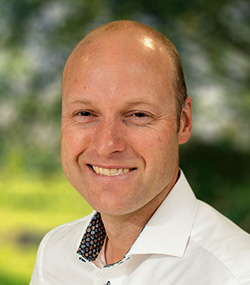
Dr. Wouter Lengkeek is a marine biologist and has studied the impact of offshore wind farms on marine ecosystems for more than 15 years. He is also a specialist in the field of wildlife-friendly design and biodiversity enhancement in offshore wind farms. He is currently director of Waardenburg Ecology and was part of the scientific advisory committee and organizing committee of CWW 2022.
Organizing Committee

Dalibor Hatić
Dalibor is Chair of the CWW2023 Organising Committee. He is an environmental consultant with over 30 years of experience and Director of OIKON Ltd. – Institute of Applied Ecology from Zagreb, Croatia. He is passionate about making development environmentally friendly and is very excited about this conference.

Mirna Mazija is the co-chair of the CWW2023 Organising Committee. She is a biodiversity specialist in the region, advising on the renewable energy projects and Natura 2000 species and site management. Her research interest are bats - population management and protection, interactions with windfarms and bringing innovative solutions to sophisticated mitigation measures.
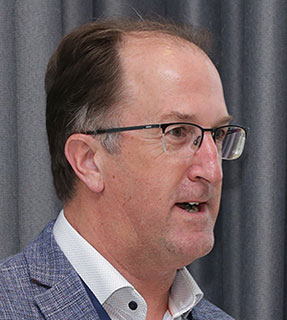
Hein Prinsen
Hein has been involved as a senior bird ecologist in effect studies for wind farms, both offshore and onshore, for more than 20 years. Currently, he is international business lead at Waardenburg Ecology.
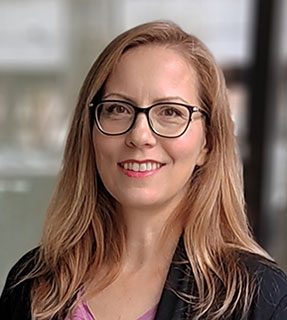
Vesna Kutnjak
Vesna is a PR consultant with 20 years of experience in PR, marketing and event management. She has been working with Oikon Ltd. – Institute of Applied Ecology for many years and is very committed and enthusiastic about this event.
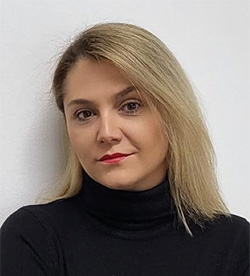
Petra Miškulin
Petra is a project manager with more than 15 years of experience in MICE (meetings, incentives, conferences, and exhibitions) industry. She manages all the information, spreads good vibes and is very enthusiastic about this event.
Sep 8-12, 2025
MORE INFO
Abstracts & Sponsoring e-mail: info@cww2023.org
Registration & Accommodation e-mail: jelena.vitanovic@spektar-holidays.hr
Please subscribe to our newsletter to ensure you receive all the timely information (programme and abstract submission availability, news, notifications etc.) about the conference!
Follow us on LinkedIn, Facebook and Twitter
Sep 8-12, 2025
MORE INFO
Abstracts & Sponsoring e-mail: info@cww2023.org
Registration & Accommodation e-mail: jelena.vitanovic@spektar-holidays.hr
Please subscribe to our newsletter to ensure you receive all the timely information (programme and abstract submission availability, news, notifications etc.) about the conference!

